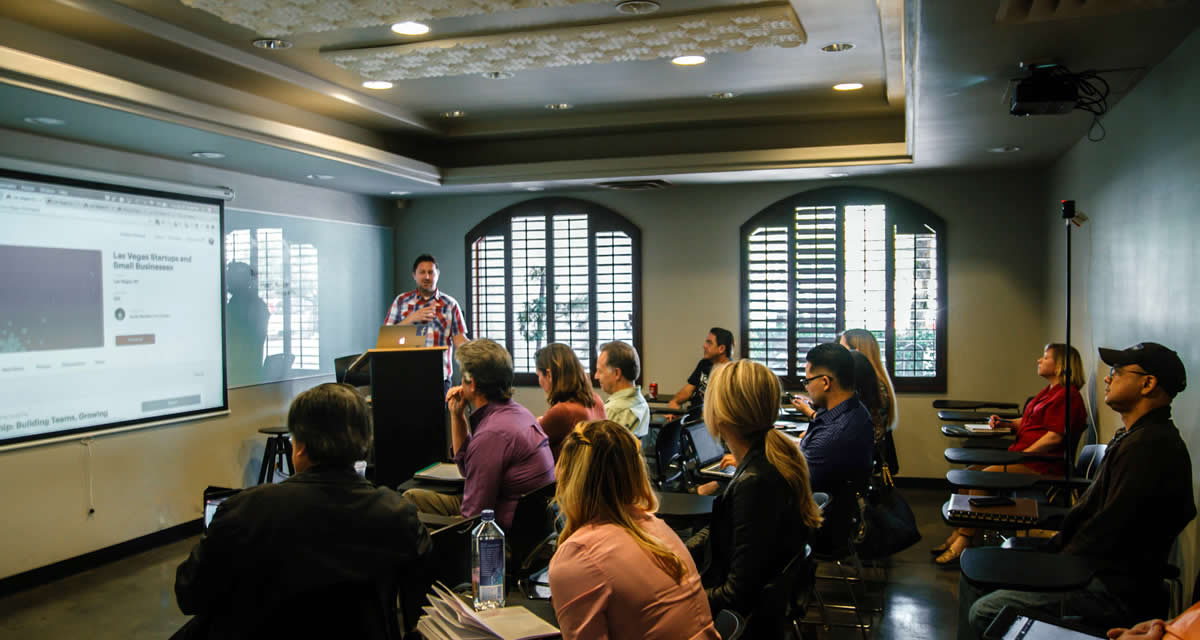Why Process Servers Should Participate in Professional Development
Professional development is something that most industries advocate for and promote because bettering the workforce elevates the profession as a whole. People who engage in professional development are apprised of the newest information and technology so that they aren’t operating with outdated processes. Similarly, tried and true methods and processes can be brought to the forefront through professional development, serving as a reminder of what is proven to work. As people work the daily grind, they often can get lost in the minutia and forget about the basics. For process servers, the job itself — affording individuals their due process rights — is something that, to many, seems fairly straightforward. So why should process servers engage in professional development, and what does it look like in the process serving industry?
Changing Industry
Process servers work in an industry that is always changing as a result of legislation and technology. In years past, process servers handled everything in hard copies. Clients would have to hand-deliver or mail copies of the complaints to be served. After serving an individual, the server would have to physically deliver the paper affidavits to the court and client. While the fundamentals of service of process largely remains the same, much has changed in the industry over the years. Staying current with changes in technology will make servers better equipped to work with current and new clients, as well as the courts.
Changing Legislation
Similarly, legislation has changed the way that process servers work. Whether it comes down to what type of service is allowable (for example, sub-service versus personal service), where an individual can be served, what days an individual can be served or something else, the rules are always evolving. Engaging in professional development will help process servers stay on top of the changes that are rapidly occurring in the industry. Even if the state in which a process server serves is unaffected by a legislative change, it may signal what is to come. Knowing what’s happening industry-wide can better prepare process servers to make changes to their processes as needed to ensure they are serving within the current rules of service.
Industry Advocacy
Professional development also positions process servers to be in a position to advocate for their best interests. If they are engaging in professional development and have been made aware of potential changes, they can advocate for what they feel would be the best course of action. For example, if a bill is proposed by a legislator that could harm the industry, process servers could get involved to help combat it by way of reaching out to their legislators, filling out witness slips, and lobbying for better legislation. Process servers cannot advocate for their best interests if they are unaware. Engaging in professional development will keep servers apprised of what’s happening legislatively in the industry so they are better poised to advocate for positive change.
What Does Professional Development for Process Servers Look Like?
Professional development can occur in a variety of ways. Obtaining supplementary certifications that require additional training, or by taking classes or seminars related to the process serving industry are ways that process servers can enhance and develop their skill set. The goal is to continuously learn and improve.
Process servers can subscribe to industry newsletters and updates offered by industry leaders and fellow servers, as well as by organizations, to read and learn about current events. Staying informed is a proactive measure to continuously learn.
Similarly, process servers can join regional and national process server organizations to keep up to speed with what is happening in the industry. Often, these organizations will hold conferences and seminars to cover relevant current events, technological advances, and updates. Simply attending these events can give process servers the information they need. Getting involved and participating in these conferences and seminars will offer an even greater commitment to learning. All of these are great ways to engage in professional development.
Bottom Line: Professional Development Enhances Your Business
Process servers should absolutely take advantage of professional development opportunities as they arise. Being knowledgeable about the industry prepares servers to adjust seamlessly to industry changes, and it positions servers to garner more business.
With offices statewide, Direct Legal Support, Inc. remains open to assist you with your legal support needs including California court e-filing and service of process in California. All of our California process servers are bonded and registered.
Keep up to date with our Court Closure Calendar we will be updating this daily as court updates come in.
As always should you have any questions or require immediate assistance contact Direct Legal Support at (213) 483-4900 and you will be able to speak to a live person.
Direct Legal Support, Inc.
Registered & Bonded California Process Servers
Established 1961
Call: (800) 675-5376
Email: support@directlegal.com
Visit: www.directlegal.com
Use Direct Legal for all your legal support needs in California
Process serving, skip tracing, writ levy services, e-filing, foreign deposition subpoena service, court research, mobile copy services and more.
Locations
Resources
Contact
Corporate / Deposition Officer Address:
901 Corporate Center Dr., Ste. 400
Monterey Park, CA 91754
1200 Wilshire Blvd, Suite 408
Los Angeles, CA. 90017
P: 213-483-4900 E: info@directlegal.com


